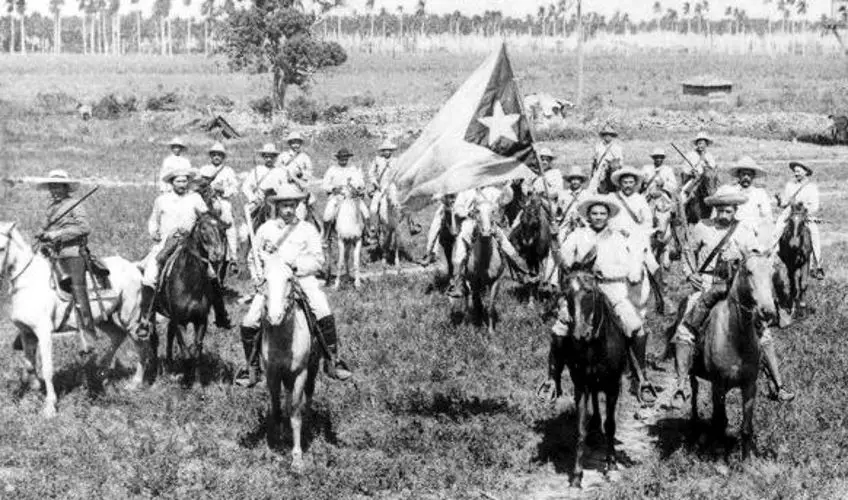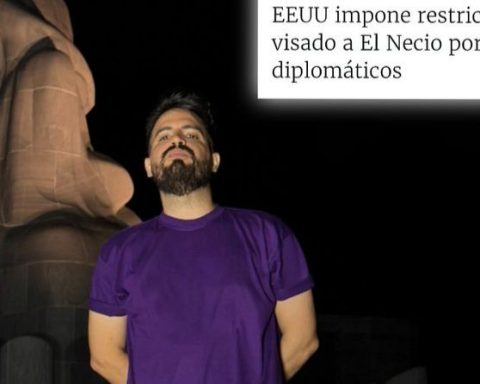HARRISONBURG, United States. — This April 24 marks the 125th anniversary of the proclamation of the Sebastopol Manifesto, another document that demonstrates the moral height of our heroes for independence.
The abuses committed by the Spanish colonialist authorities against the civilian population, especially the reconcentration plan of the Spanish General Valeriano Weyler, had transcended the insular border and found an echo in the United States press, also being unequivocal that sheltered from the sincere expressions of solidarity of the American people, the spurious interests of some politicians were hidden, tending to achieve the annexation of Cuba to the US, something very well proven by history.
One of the significant events that managed to attract the attention of the Americans was the escape of the patriot Evangelina Cossío Cisneros, the only woman who participated in the armed uprising that took place on the Isle of Pines on July 26, 1896. Captured by the colonialists, the The young man managed to escape from prison and reach the US with the help of various US diplomats and agents. Here she offered her testimony about the Cuban reality and contributed to the strengthening of the propaganda campaign against Spain and in favor of our independence.
On February 15, 1898, the battleship Maine exploded in the port of Havana. Although over the years the most accepted thesis is that it was an accident, the truth is that the event was the trigger for a chain of events that made that year the last year of Spanish domination in Cuba.
On April 13, 1898, the US House of Representatives agreed to the request of President William McKinley to intervene in Cuba and on the 20th of that month the government approved the Joint Resolution, validating the intervention that would begin one day after.
At that time, the situation of the Spanish forces was very difficult. The mambi forces, although they had not dealt the final blow to the colonialist hosts in the country’s capital, were advancing slowly, but gradually in terms of dominance of territories and political-military influence, so their triumph was just a matter of of time. The entry of the northern forces increased the vulnerability of the Spanish troops.
Aware of what the new turn of events meant, the representatives of the metropolis issued an edict announcing the unilateral cessation of their military operations throughout the Island.
There are various opinions about the true intention of this announcement, although most agree that it was an action intended to prevent what ultimately happened and ruined the last Spanish possessions overseas.
It was then that the Cuban independence general Domingo Méndez Capote, an eminent jurist, vice president of the Republic in Arms and in charge of the war portfolio, drafted a document that was later approved by the Government Council and signed by the president, also a general Bartolomé Masó, on April 24, 1898 in the town of Sebastopol, province of Camagüey, hence the name by which this historical document is known.
For the Cuban patriots it was inadmissible that Spain declared the cessation of hostilities without taking them into account. This outrageous attitude would be the same one they would maintain when refusing to allow Cubans to participate in the negotiating table set up later in Paris and is similar to the one currently maintained by not a few Spanish businessmen, more inclined to satisfy their desire for profit than to really help the country. cuban people.
To make their position clear regarding such a position, the patriots affirmed in the document the following: “The lack of consideration in which we have always been held comes today, no longer to suppose, as before, that we are not an appreciable factor for the solution of matters that concern Cuba, but to suppress our existence as elements that fight Spain with arms in hand. There is no other way to explain the claim to dictate an armistice by only one of the combatants, something that will never have occurred to any army, whatever the situation in which it found itself. It is said that the purpose of this measure is to prepare and facilitate peace on this Island. Spain should know, as the world knows today, that there is only one way to obtain peace in Cuba: to recognize our independence. The Spanish government can do this, either by evacuating Cuban territory immediately or by taking the straight path, and in a frank attitude to agree with us on the indeclinable basis of the absolute and immediate independence of the entire island of Cuba”.
What the eminent historian Emilio Roig de Leuchsenring stated about Cuba not owing its independence to the United States is true, but it cannot be overlooked that the intervention of that country accelerated the outcome of the conflict and prevented greater losses. of human lives and damage to the economy.
Still around this event there is a lot of information pending to be socialized in detail, especially the repeated contacts held by senior officers of the Liberation Army and members of the Governing Council of the Republic in Arms with the US government to promote its intervention in the war, an edge that offers another vision that is far removed from the one that the ideologues of Castroism have reiterated.
The Sebastopol Manifesto is another inescapable document of our history, of the dignity of our independence leaders and of their unwavering decision to continue fighting until independence is achieved.















